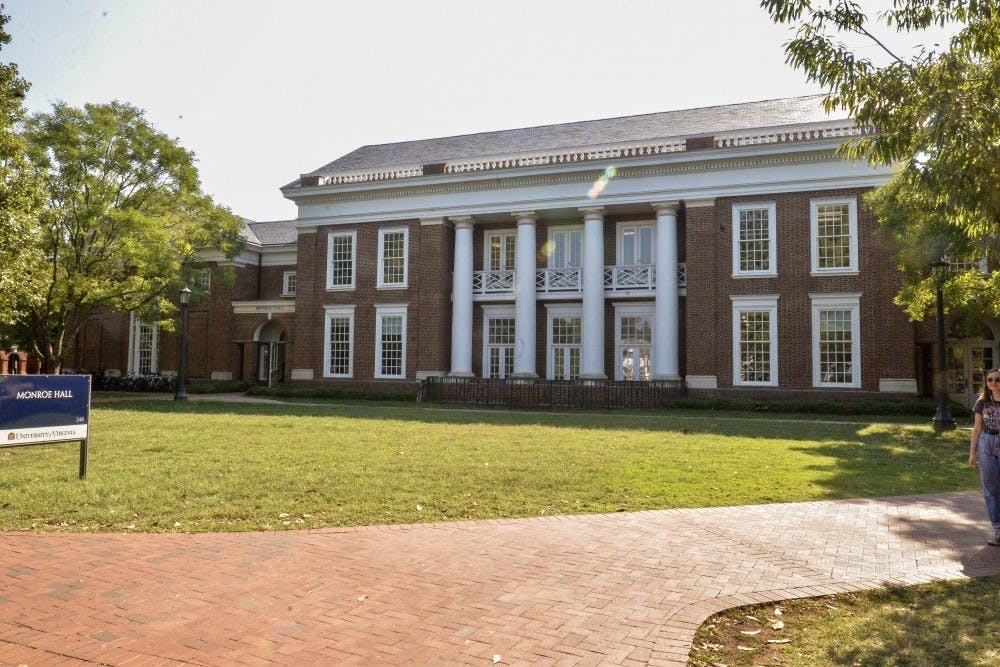中文版请点击此处
In a letter written in 1820 to William Roscoe, Thomas Jefferson outlined his vision for a university “based on the illimitable freedom of the human mind.” Yet 200 years later, this impressive vision of academic and intellectual freedom has not been fully realized at the University. Currently, the vast majority of students within the College of Arts and Sciences find themselves needing to complete course requirements across a range of subjects in order to graduate. A prescribed system such as this undoubtedly hinders individuals from pursuing their academic interests while also burdening students who lacked access to advanced coursework in high school. Consequently, the University should do away with course requirements that extend beyond what is necessary for a student’s chosen major.
The College’s curriculum has recently undergone its first major change in over 40 years. In October 2019, the faculty voted to adopt the New College Curriculum. This program of study includes new thematic engagement courses alongside a series of area requirements under the umbrella of literacies and disciplines credits. Additionally, the Forums curriculum requires students to complete a set of courses clustered around several overarching topics. The logic behind these requirements is both admirable and understandable — the faculty wishes to ensure that students receive a well-rounded education by forcing undergraduates to take courses outside their major. While I do not disagree with the benefits of academic exploration, I find the necessity for such requirements at the University dubious. Given the fact that the University has competitive admissions, and 90 percent of first-years report being in the top 10 percent of their graduating class, it is safe to assume that the average student is already self motivated and curious enough to pursue an array of subjects by their own volition.
A number of other colleges, such as Brown and Amherst, have already done away with area requirements. Moreover, Echols scholars — an honors program enrolling roughly 5 percent of students in the College — already find themselves exempt from mandated courses outside of their major. It is hard to imagine that students at these universities and Echols scholars have, in the absence of enforced area requirements, spent their undergraduate careers taking only a narrow selection of courses. It would therefore be more natural and less anxiety-inducing to allow students to organically select classes that align with their interests without being forced to accommodate imposed general education requirements. This increased latitude and freedom will also likely inspire a more intimate sense of ownership for one’s own education.
The imposition of area requirements also creates situations where passionate students may be dissuaded from pursuing advanced or graduate-level coursework within their major due to a necessity to fulfill graduation requirements. In this instance, I would argue that the marginal benefit of having a student take a 4000-level or higher course that they are genuinely interested in is greater than that of mandating that they take an unrelated introductory course in a subject they are not planning to pursue. As a result, the University should not place artificial roadblocks in the way of students wishing to challenge themselves by taking courses that align with their academic interests or professional aspirations.
Even if one disagrees with the above reasoning, it cannot be denied that general education requirements have a disparate impact on students from rural or low-income school districts. A 2018 analysis by the Government Accountability Office found that 28.8 percent of American high schools offered no Advanced Placement classes, and 30.6 percent offered no dual enrollment options. These schools that lacked opportunities to earn college credits tended to be disproportionately small and impoverished. Consequently, students coming from these school districts find themselves at a disadvantage when compared to their peers who had the benefit of taking Advanced Placement or community college classes back in high school. This results in students from small or impoverished districts needing to devote a larger proportion of their already limited class schedule toward fulfilling general education requirements.
Unfortunately, this inequity means that students from such backgrounds experience heightened difficulty when attempting to complete either multiple majors or majors with extensive credit requirements within four years. It should be the aim of the College to help, not hinder students from under-resourced school districts in achieving their academic goals. However, the New College Curriculum’s requirements may in fact inhibit an individual’s aspirations.
Ultimately, the New College Curriculum and the principle of general education requirements are well-intentioned. Yet, in their implementation, these policies stifle self-exploration and perpetuate inequity on Grounds. The current curriculum may have value as an optional or recommended program, but mandatory courses outside of one's major should be done away with if the University is to truly live up to Jefferson’s vision.
Max Bresticker is an Opinion Columnist for The Cavalier Daily. He can be reached at opinion@cavalierdaily.com.
The opinions expressed in this column are not necessarily those of The Cavalier Daily. Columns represent the views of the authors alone.







